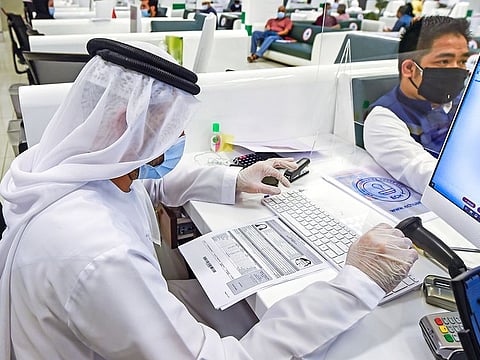UAE visa violations that can lead to deportation explained
Stricter enforcement of laws leaves little room for violators

ABU DHABI: Starting September 1, the UAE is making significant changes to its residency regulations, focusing on addressing violations to maintain security and enforce compliance.
The UAE’s 2024 residency regulation updates underscore the necessity for understanding and adhering to visa and residency laws to avoid severe consequences, including deportation.
The key residency violations leading to deportation are as under:
Overstaying: The UAE’s policies on visa expiration are strict and precise. A slight delay can quickly lead to hefty fines and even deportation. Residents must exercise perseverance, ensuring their visas are renewed without delay and remain fully aware of the specific grace periods allotted for various visa categories.
Illegal employment: Engaging in employment without a valid work permit is a serious violation with significant consequences. Both employers and employees are at risk. Employees discovered working without proper authorisation may face immediate deportation, while employers might incur severe financial penalties. The stakes underscore the critical importance of adhering to employment regulations.
Criminal activities: From minor offences to serious crimes, the penalties are tough. The country’s zero-tolerance view on offences such as theft, assault, drug-related crimes and fraud means that involvement in any criminal activity can lead to instant deportation. There is no room for flexibility or second chances.
Failure to renew residency permits: The responsibility falls squarely on residents to ensure their permits are current and to initiate renewals well before expiration. Any delay or oversight in this regard can lead to deportation, highlighting the critical importance of maintaining valid documentation.
The validity of a residence visa varies depending on its type and the sponsor – usually your workplace or educational institution – and can be valid for either one, two, three, five or 10 years depending on your circumstances.
Those with shorter-term UAE residence visas rely on a sponsor while those with longer than five years can self-sponsor.
If you’re over the age of 18 and are applying for a UAE residence visa, then you’ll need to complete a medical test, pass a security check and apply for an Emirates ID.
New regulations and their impact
The recent regulatory updates mark a strong shift towards stricter enforcement of laws and enhanced penalties. The key developments include:
Enhanced monitoring and reporting: The UAE has introduced advanced monitoring systems designed to carefully track visa statuses and residency compliance. These technological advancements enable rapid identification and action against rule-breakers, facilitating more effective enforcement and supervision.
Increased fines and penalties: Fines associated with violations such as overstaying and illegal employment have seen a dramatic increase. This strategic boost serves as a powerful block, compelling residents to adhere strictly to residency regulations. The financial stakes are now significantly higher.
Streamlined deportation processes: Under the new regulations, the process for deportation has become more efficient and expedited.
If you are found to be in violation of residency laws, such as overstaying your visa or breaching any other residency conditions, the authorities will take immediate action.
This can include quick detention and instant initiation of deportation procedures. The procedures have been designed in a way that deportations are carried out swiftly without wasting any time or allowing you any time to fight back.
This efficiency is intended to prevent prolonged illegal stays and reinforce compliance of residency laws.
Tips for compliance
To navigate the regulations effectively and avoid the risk of deportation, residents should:
Regularly check visa and residency permit status: Attention is key. Ensure that all visas and permits are up to date, and renew them well before their expiration dates to avoid lapses.
Adhere to employment laws: Only engage in employment that is legally approved.
Verify that all work is conducted under the appropriate permits and visas.
Follow all local Laws: Familiarise yourself with and strictly follow local laws. This aggressive approach helps prevent legal issues that could lead to deportation.
Seek legal advice if uncertain: If you have any doubts about your residency status, consult with legal professionals or relevant authorities to clarify your situation and avoid potential complications.


